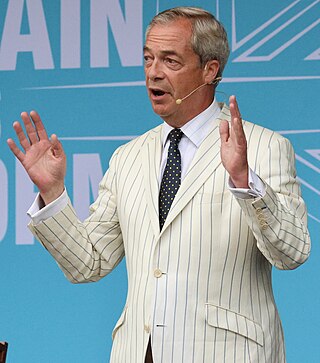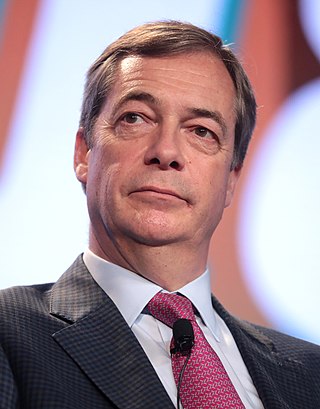Related Research Articles

Rajendra Kumar Pachauri was the chairman of the Intergovernmental Panel on Climate Change (IPCC) from 2002 to 2015, during the fourth and fifth assessment cycles. Under his leadership the IPCC was awarded the Nobel Peace Prize in 2007 and delivered the Fifth Assessment Report, the scientific foundation of the Paris Agreement. He held the post from 2002 until his resignation in February 2015 after facing multiple allegations of sexual harassment. In March 2022, he was exonerated of the sexual harassment allegations. He was succeeded by Hoesung Lee. Pachauri assumed his responsibilities as the Chief Executive of The Energy and Resources Institute in 1981 and led the institute for more than three decades and demitted office as Executive Vice Chairman of TERI in 2016. Pachauri, universally known as Patchy, was an internationally recognized voice on environmental and policy issues, and his leadership of the IPCC contributed to the issue of human-caused climate change becoming recognized as a matter of vital global concern.

Nigel Paul Farage is a British politician and broadcaster who has been the leader of Reform UK since June 2024, having previously been its leader from 2019 to 2021. He was the leader of the UK Independence Party (UKIP) from 2006 to 2009, and 2010 to 2016. Farage served as a Member of the European Parliament (MEP) for South East England from 1999 until the UK's withdrawal from the European Union (EU) in 2020.

Richard Graham Corbett CBE is a former British politician who served as the final Leader of the European Parliamentary Labour Party (EPLP), from 2017 to 2020.
Christopher John Penrice Booker was an English journalist and author. He was a founder and first editor of the satirical magazine Private Eye in 1961. From 1990 onward he was a columnist for The Sunday Telegraph. In 2009, he published The Real Global Warming Disaster. He also disputed the link between passive smoking and cancer, and the dangers posed by asbestos. In his Sunday Telegraph section he frequently commented on the UK Family Courts and Social Services.

The Bow Group is a UK-based think tank promoting conservative opinion. Founded in 1951, it is the oldest group of its kind, counting many senior Conservative Party MPs and peers among its members. It represents a forum for political debate with its varied programme of events and official journal.

Boston and Skegness is a county constituency, represented in the House of Commons of the UK Parliament. It is located in Lincolnshire, England. Like all British constituencies, Boston and Skegness elects one Member of Parliament (MP) by the first-past-the-post system of election. The seat has been represented by the Conservative MP Matt Warman since the 2015 general election, and is usually considered a safe seat for the party.

John Douglas Wilson Carswell is a British former politician who served as a Member of Parliament from 2005 to 2017, co-founded Vote Leave and currently serves as president and CEO of the Mississippi Center for Public Policy.

Euroscepticism in the United Kingdom is a continuum of belief ranging from the opposition to certain political policies of the European Union to the complete opposition to the United Kingdom’s membership of the European Union. It has been a significant element in the politics of the United Kingdom (UK). A 2009 Eurobarometer survey of EU citizens showed support for membership of the EU was lowest in the United Kingdom, alongside Latvia and Hungary.

On 23 June 2016, a referendum took place in the United Kingdom (UK) and Gibraltar to ask the electorate whether the country should remain a member of, or leave, the European Union (EU). The result was to leave, triggering calls to begin the process of the country's withdrawal from the EU commonly termed "Brexit".
Arron Fraser Andrew Banks is a British businessman and political donor. He is the co-founder of the Leave.EU campaign. Banks was previously one of the largest donors to the UK Independence Party (UKIP) and helped Nigel Farage's campaign for Britain to leave the EU.

The 2019 European Parliament election was the United Kingdom's component of the 2019 European Parliament election. It was held on Thursday 23 May 2019 and the results announced on Sunday 26 and Monday 27 May 2019, after all the other EU countries had voted. This was the United Kingdom's final participation in a European Parliament election before leaving the European Union on 31 January 2020, and was also the last election to be held under the provisions of the European Parliamentary Elections Act 2002 before its repeal under the European Union (Withdrawal) Act 2018 and was the first European election in the United Kingdom to be held on a day that did not coincide with any local elections since 1999. This was the first of two national elections that would be held in the United Kingdom in 2019 with the 2019 general election being held six months later in December 2019.

Vote Leave was a campaigning organisation that supported a "Leave" vote in the 2016 United Kingdom European Union membership referendum. On 13 April 2016 it was designated by the Electoral Commission as the official campaign in favour of leaving the European Union in the Referendum.
Leave.EU was a political campaign group that was first established to support the United Kingdom's withdrawal from the European Union in the June 2016 referendum. Founded in July 2015 as The Know, the campaign was relaunched in September of that year with its name changed to "Leave.eu" to reflect altered wording in the referendum question.

Grassroots Out (GO) was an organisation funded by Arron Banks that campaigned in favour of EU withdrawal in the 2016 referendum on EU membership in the United Kingdom. The organisation was formed in January 2016, as a result of infighting between Vote Leave and Leave.EU, and officially launched on 23 January 2016 in Kettering.
A number of politicians, public figures, newspapers and magazines, businesses and other organisations endorsed either the United Kingdom remaining in the EU or the United Kingdom leaving the EU during the 2016 United Kingdom European Union membership referendum.

Campaigning in the United Kingdom European Union membership referendum began unofficially on 20 February 2016 when Prime Minister David Cameron formally announced under the terms of the European Union Referendum Act 2015 that a referendum would be held on the issue of the United Kingdom's membership of the European Union. The official campaign period for the 2016 referendum ran from 15 April 2016 until the day of the poll on 23 June 2016.
The result in favour of Brexit of the 2016 United Kingdom European Union membership referendum is one of the most significant political events for Britain during the 21st century. The debate provoked major consideration to an array of topics, argued up-to, and beyond, the referendum on 23 June 2016. The referendum was originally conceived by David Cameron as a means to defeat the anti-EU faction within his own party by having it fail, but he misjudged the level of public support for leaving, particularly amongst Labour Party voters. Factors included sovereignty, immigration, the economy and anti-establishment politics, amongst various other influences. The result of the referendum was that 51.8% of the votes were in favour of leaving the European Union. The formal withdrawal from the EU took place at 23:00 on 31 January 2020, almost three years after Theresa May triggered Article 50 of the Lisbon Treaty on 29 March 2017. This page provides an overarching analysis of the different arguments which were presented by both the Leave and Remain campaigns.
A by-election for the House of Commons constituency of Sleaford and North Hykeham in Lincolnshire, England, was held on 8 December 2016. It was triggered by the resignation of the Conservative member of parliament (MP) Stephen Phillips, who left Parliament on 4 November 2016 due to policy differences with the Conservative government led by the prime minister, Theresa May, over Brexit – the British withdrawal from the European Union (EU). The Conservatives nominated Caroline Johnson, a paediatrician, to replace Phillips; she won the by-election with more than 50 per cent of the vote, a sizable majority. The Conservatives' vote share fell slightly compared to the result at the previous general election in 2015.
The Great Deception: Can the European Union Survive? is a book written by the journalist Christopher Booker and the researcher Richard A. E. North, written in 2005 with an update published in 2016 for the European Referendum.

55 Tufton Street is a four-storey Georgian-era townhouse on historic Tufton Street, in Westminster, London, owned by businessman Richard Smith. Since the 2010s the building has hosted a network of libertarian lobby groups and think tanks related to pro-Brexit, climate science denial and other fossil-fuel lobby groups. Some of the organisations it houses have close connections with those at 57 Tufton Street next door, including the Centre for Policy Studies and CapX.
References
- 1 2 McSpotlight, Richard North curriculum vitae
- ↑ Continuum Publishing, Ministry of Defeat: The British in Iraq 2003–2009
- ↑ Christopher Booker, Christopher Booker's notebook, Daily Telegraph, 30 July 2006
- 1 2 3 4 Bruges Group, Columnists, The Bruges Group
- ↑ Richard North, "The Regulatory Crisis of the 1990s: Some Solutions", Economic Affairs, 14(4), June 1994, pp23–27
- ↑ Daniel (2005:103)
- ↑ Daniel (2005:34)
- ↑ Mark Daniel, Cranks and gadflies: the story of UKIP" , Timewell Press, 2005. p105
- ↑ Daniel (2005:138)
- ↑ Alan Sked, "As founder of the UKIP, I will vote Tory", Daily Telegraph , 30 May 2004
- ↑ Christopher Booker, "Christopher Booker's notebook", Daily Telegraph, 1 January 2006
- ↑ Mackenzie, Kate (10 October 2006). "European bloggers find their voice". Financial Times. Retrieved 6 May 2017.
- 1 2 North, Richard (11 May 2015). "EU Referendum: the battle for Wikipedia". eureferendum.com. Archived from the original on 7 March 2019. Retrieved 7 March 2019.
As with climate change, Wikipedia looks to be on the wrong side, and we are going to have to fight hard to get our voices heard. The "out" campaign is going to have to establish our own, permanent Wikipedia unit, to monitor, add and edit content. If anyone wants to volunteer, drop me an e-mail.
- ↑ http://eureferendum.com/themarketsolution.pdf [ bare URL PDF ]
- ↑ "PM resigns as Britain votes to leave EU". The Register. 24 June 2016. Retrieved 3 April 2017.
- ↑ "Why Theresa May's hard Brexit might be softer than you think". The Register.
- ↑ "Please let's not take the monetary sledgehammer to the nut of Britain's post Brexit economy". The Daily Telegraph.
- ↑ "Leave camp must accept that Norway model is the only safe way to exit EU". The Daily Telegraph.
- ↑ Richard North (8 April 2014). "Flexcit: how we would actually leave the EU". eureferendum.com.
- ↑ "IEA announces Brexit Prize shortlist". IEA. 31 October 2013.
- ↑ "'They're Run By A Chimpanzee On Drugs' - The Tweets Which Will Embarrass Leave.EU's New Adviser". Huffington Post (UK). 8 January 2016.
- ↑ J Clive-Mathews (29 February 2008). "The State of the EU debate". jcm.org.uk.
- ↑ Martin Westlake (14 February 1997). "Fleeing the union Jacques". Times Higher Education.
- ↑ Mark Gilbert (December 2005). Richard, Spall (ed.). "Book Review: The Great Deception: The Secret History of the European Union. By Christopher Booker and Richard North". The Historian. 67 (4): 787–788. doi:10.1111/j.1540-6563.2005.00130.x. S2CID 218499735.
- 1 2 Tunkrová, Lucie (Winter 2006). Karlas, Jan (ed.). "The Great Deception. The Secret History of the European Union (Skryté dějiny evropské integrace od roku 1918 do současnosti) by Christopher Booker, Richard North". Perspectives: The Central European Review of International Affairs (27). Institute of International Relations, NGO: 122–124. eISSN 1803-4551. ISSN 1210-762X. JSTOR 23616067.
- 1 2 Moravcsik, Andrew (22 August 2004). "Eurosceptic, but sane". Prospect. Retrieved 6 May 2017.
- ↑ "We are a group of EU Law legal experts researching Brexit. Ask us Anything". Reddit. 4 August 2016. Retrieved 21 May 2017. "No, we're not aware of North's academic work on EU law: it does not appear to be published in the mainstream international peer reviewed journals for the field of European legal studies (though do feel free to point us in the right direction, if we have missed something out here). We tend to work with materials meeting the proper standards for academic research, which are internationally recognised for our discipline."
- ↑ Andrew Rowell. Don't worry, it's safe to eat: the true story of GM food, BSE, & Foot and Mouth. Earthscan, 2003. p188
- ↑ "Ministry of Defeat: the British War in Iraq 2003–2009 by Richard North: review", Daily Telegraph , 18 July 2009
- ↑ Christopher Booker, "Christopher Booker's Notebook", Daily Telegraph, 27 January 2008
- Christopher Booker, "Christopher Booker's Notebook", Daily Telegraph, 23 December 2007 - ↑ Richard North (2003), "The Wrong Side of the Hill", Centre for Policy Studies
- 1 2 Booker, Christopher (30 January 2010). "Amazongate: new evidence of the IPCC's failures". The Sunday Telegraph . Archived from the original on 21 August 2010. Retrieved 14 May 2010.
- ↑ "Harrabin's Notes: IPCC under scrutiny", BBC , 30 January 2010
- ↑ "Leakegate: A retraction". RealClimate. 20 June 2010. Retrieved 27 November 2010.
- ↑ Christopher Booker and Richard North, "Questions over business deals of UN climate change guru Dr Rajendra Pachauri". The Sunday Telegraph , 20 December 2009
- 1 2 Daily Telegraph , 21 August 2010, Dr Pachauri – Apology
- 1 2 3 George Monbiot, "Rajendra Pachauri innocent of financial misdealings but smears will continue", The Guardian, 26 August 2010,
- ↑ The article was titled "Questions over business deals of UN climate change guru Dr Rajendra Pachauri". According to George Monbiot (26 August 2010), "The subtitle alleged that Pachauri has been "making a fortune from his links with 'carbon trading' companies". The article maintained that the money made by Pachauri while working for other organisations "must run into millions of dollars".
- ↑ Christopher Booker and Richard North, The curious case of the expanding environmental group with falling income, The Sunday Telegraph , 17 January 2010
- ↑ "Daily Telegraph apologises to Pachauri", Hindustan Times , 21 August 2010